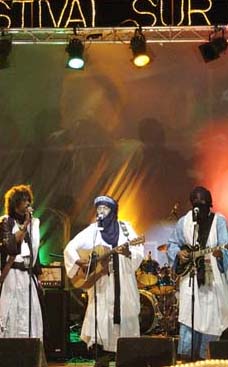
Summer before last, my wife and I traveled in Kenya during the month of July. We visited our oldest daughter, who was a Peace Corps volunteer in the remote village of Birongo (no running water or electricity!). We returned from Kenya, got off the plane in Omaha, drove into our east Lincoln neighborhood, then simultaneously looked at each other, and in a synchronized duet we both exclaimed, “Where is everybody?” In Kenya we had been immersed in a country and a culture where people are visible everywhere almost all of the time. From Nairobi to Meru to Kisii to Lake Victoria to Birongo, there were always people and more people … walking along the highway, standing in the crowded marketplace, working at a job site, sitting near their homes, lying in a field next to cattle grazing, or talking with friends in the countryside. Kenya is a third world country, and, for the most part, a large percentage of Kenyans literally “live on the edge.” They are forced to depend upon each other in times of need, so I don’t want to overly romanticize Kenyan togetherness. But our own Lincoln neighborhood was in stark contrast to the bustling Kenya villages and neighborhoods and, though it helped me to appreciate all we have in Lincoln, it also made me wonder what we might be missing. Granted, there is a lot of neighborliness in some Lincoln neighborhoods … but none can match what I saw in Kenya. With the advent of TV, air conditioners, computers, automatic garage door openers (where we disappear into our houses), the demise of front porches and the “busyness” which consumes so much of our lives, ours has become a culture of privacy where people can live right next door for years and never become acquainted.
Jim Keyser writes: The line between privacy and isolation
The line between privacy and isolation
BY JIM KEYSER
Saturday, Jan 13, 2007 - 12:16:19 am CST
Summer before last, my wife and I traveled in Kenya during the month of July. We visited our oldest daughter, who was a Peace Corps volunteer in the remote village of Birongo (no running water or electricity!).
We returned from Kenya, got off the plane in Omaha, drove into our east Lincoln neighborhood, then simultaneously looked at each other, and in a synchronized duet we both exclaimed, “Where is everybody?” In Kenya we had been immersed in a country and a culture where people are visible everywhere almost all of the time. From Nairobi to Meru to Kisii to Lake Victoria to Birongo, there were always people and more people … walking along the highway, standing in the crowded marketplace, working at a job site, sitting near their homes, lying in a field next to cattle grazing, or talking with friends in the countryside.
We found Kenyans to be wonderfully gracious and hospitable. As we walked the mile and a half dirt road from our daughter’s house to the nearest paved highway, people sat or stood near their homes and regularly ventured out to greet us with a hearty Kenyan handshake and warm welcome.
Even the cheap “matatu” (14-passenger van) puts you thigh to thigh and shoulder to shoulder with other travelers, because often there were more than 14 people aboard!
Kenya is a third world country, and, for the most part, a large percentage of Kenyans literally “live on the edge.” They are forced to depend upon each other in times of need, so I don’t want to overly romanticize Kenyan togetherness. But our own Lincoln neighborhood was in stark contrast to the bustling Kenya villages and neighborhoods and, though it helped me to appreciate all we have in Lincoln, it also made me wonder what we might be missing. Granted, there is a lot of neighborliness in some Lincoln neighborhoods … but none can match what I saw in Kenya.
With the advent of TV, air conditioners, computers, automatic garage door openers (where we disappear into our houses), the demise of front porches and the “busyness” which consumes so much of our lives, ours has become a culture of privacy where people can live right next door for years and never become acquainted.
On a trip to Spain a few years ago to visit another daughter (if it weren’t for our kids, we’d never get out of the house!), we were walking from our hotel to dinner quite late one night in Granada. What we witnessed and experienced was a moonlight paseo, or a stroll often arm in arm, of young, old and in between with busy toddlers fascinated by outdoor fountains, and babies being wheeled in stylish buggies by proud young parents.
It was obviously a regular evening gathering in the city square where people came to eat at outdoor restaurant tables, but also to leisurely sit, walk and talk into the night. We were surprised at the late hour for small children, but it was obvious the babies, along with their parents, were being lauded and affirmed by grandmotherly and grandfatherly passers-by who oohed and aahed at the smiling children.
My experiences in Kenya and Spain reminded me of growing up in a small Nebraska town where life was not so private, where people knew and talked to their neighbors, where folks pitched in to help out, and where we kids knew there were more adults than just our parents keeping an eye on us.
It’s easy to idealize life in other countries or in small town Nebraska “way back when,” but occasionally I wonder if we’ve lost some of the peculiar connections and solid bonds which hold us together as human neighbors and city dwellers.
When does privacy become isolation? Where do we engage each other in friendly, neighborly, relaxed conversations? Where do we find opportunities to learn about and care about those who live in close proximity to us? If there are no front porches (and I don’t mean those faux front porches in my neighborhood), then where can we sit and debate politics, religion, football, teenagers and the city budget? Without these shared conversations, how will we fulfill the dream of Jefferson and Madison who both regarded lively public discourse vital to thriving democracies?
It’s ironic in America that we can live so close to each other and yet not always be friendly or talkative, while people on Oprah, YouTube, or myspace.com will share the most intimate details of their private lives with millions of perfect strangers.
I’m as private as anyone else, and my work, which is filled with people, can cause me to withdraw into my cocoon (house) for privacy. I know the lure and pull of the private, and certainly privacy is a necessary part of our lives. But sometimes I wonder if we’re stretching at the very human fabric that holds us all together when we become distant to even our closest neighbors. I keep remembering Kenya and Spain, where privacy seemed to be more public.
Dr. Jim Keyser is pastor of Trinity United Methodist Church.
















